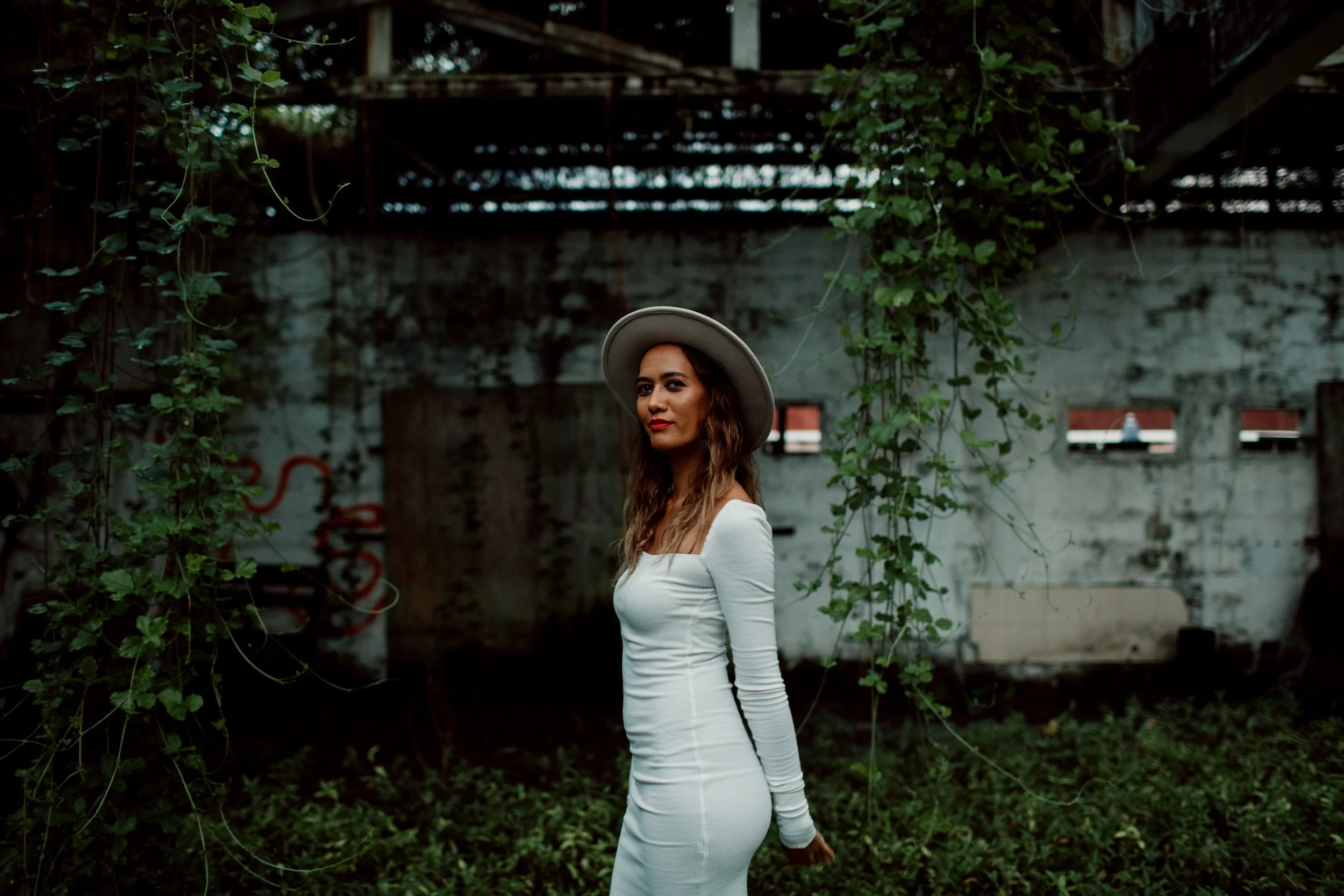Image by Alex Moana King
“..Through photo documentary, storytelling and reconnecting to my culture and community, I have landed in a niche market, as an indigenous photographer, trying to make a positive impact and give back to my communities by challenging the world view on who we are, our identities and our traditions.”
Alex Moana King
Polynesian and Maori photographer Alex Moana King is one of five extraordinary recipients of Photographers Without Borders’ inaugural Revolutionary Storytelling Grant. Alex and her fellow winners each will receive $5,000 to support the creation of an impactful photography project and community exhibition of their work. The grant program is supported by a donation from the international brand Aēsop Skincare.
“There are a huge number of storytellers, creatives, and projects happening in the world and this is a moment us 5 women from different parts of the globe get to embrace not only for ourselves but for our upcoming projects that will be mindful, powerful, ethical and re-direct inspiration towards our communities. This grant will be going towards one of the most important projects that I will document this year,” says Alex.
Image by Alex Moana King
Born in Opotiki, on the East Coast of Aotearoa (New Zealand) Alex’s mother’s family and tribes descend from Whakatohea, Ngati Porou and Tuhoe. Alex lives in Rarotonga, Cook Island where her father comes from. “Our families descend from both the islands of Mangaia and Rarotonga.”
In her journey of photographing over 200 weddings and hundreds of portraits, Alex says she’s “learnt to focus my attention, on heavy topics limited to social justice, our whenua(land) environment, our Moana(ocean), and the preservation of our culture and identities. These make for powerful rewritten and new narratives, which represent indigenous people in a truthful and authentic place.”
Image by Alex Moana King
Alex’s winning project is titled - Keeping Pukapuka: The Motu of Self-Preservation. The short documentary and photography project is about the remote community on the island of Pukapuka, a coral atoll and tiny island in the northern group of the Cook Islands. Pukapuka’s matriarchal system has had a profound effect on its development. The women on the island are highly respected and are known to be the planters and growers and the holders of traditional knowledge on growing Taro besides the normal creative industries.
Today the community of Pukapuka is striving to maintain, preserve and sustain their way of life in the face of the encroaching tourism industry throughout the Cook Islands. “Tourism is not quite welcomed by the locals but global climate change and environmental challenges due to rising sea levels, increasing pressure of illegal foreign fishing within its waters, compounded with health, economic issues, and foreign influences through technology and social media are slowly changing the mindset of the community,” says Alex.
Alex’s project will document how increased tourism and climate impacts are challenging Pukapuka’s strong cultural and traditional ties to their marine and land resources, and the range of sustainable systems they use to enhance and ensure adequate supplies of these resources for the present and the future of their communities.
Alex says “A good example of such a system is a tool called Ra’ui, in local language, which is the restriction or banning of the taking of marine or land food resources over a period of time. Thus a 12 month ra’ui on the harvesting of coconut crab from all areas of the island provides not only adequate food supply to the community, but also ensures the crab is not over- exploited and driven to the edge of no ability to replenish itself. This simplified approach also allows for the entire island to benefit from the ra’ui, however, if the ra’ui is broken by a family seeking food, then the offender is “fined”, not in monetary terms, but often in provision of other food resources to the village, such as husked coconuts.”
All the Revolutionary Storytelling Grant winners will be supported by the PWB team through to the culmination of their project and community exhibition with a behind-the-scenes video and a campaign to support the project’s impact goals.
Alex says she’s humbled and excited about the work ahead of her. “I have to embrace my work ethic and the journey I have taken to get here. It has been far from perfection. But now I hold the responsibility of delivering on these projects and ensuring I am guiding the way of correct context and ethical storytelling through my visuals, especially as I represent Maori and Polynesian women, and vulnerable communities,” she says.
While Alex works on her RSG project her work is currently being exhibited in the Mother Earth Speaks 2022 CONTACT Exhibit and you follow her on IG to view more of her amazing work.








